Hair loss and stress: how stress impacts our hair

Sommaire
Telogen effluvium is a form of diffuse and temporary hair loss that occurs following a significant or prolonged period of stress. This reactive hair loss is directly linked to the impact of stress on the hair growth cycle, causing a large number of hairs to prematurely enter the telogen (resting) phase.
To fully understand this phenomenon, it’s important to be familiar with the three phases of the hair growth cycle:
- The anagen (growth) phase: hair remains in active growth for 2 to 5 years.
- The catagen (transition) phase: a short phase of 2 to 3 weeks marking the end of active growth.
- The telogen (resting) phase: the hair gradually sheds over a period of around 3 months, before naturally falling out.

Normally, only 10 to 15% of hairs are in the telogen phase at any given time. However, when the body is subjected to significant stress, it profoundly disrupts the hair cycle:
- Stress prematurely shortens the anagen growth phase of many hairs, causing them to transition directly into the telogen resting phase.
- The proportion of hairs in the telogen phase can then reach 30 to 50%.
- These hairs enter the telogen phase synchronously rather than the gradual transition seen in a normal growth cycle.
Clinically, this disruption of the hair cycle results in diffuse and excessive hair shedding, occurring approximately 3 months after the onset of the stressful event. The amount of hair shed can be quite alarming, sometimes several hundred hairs per day.
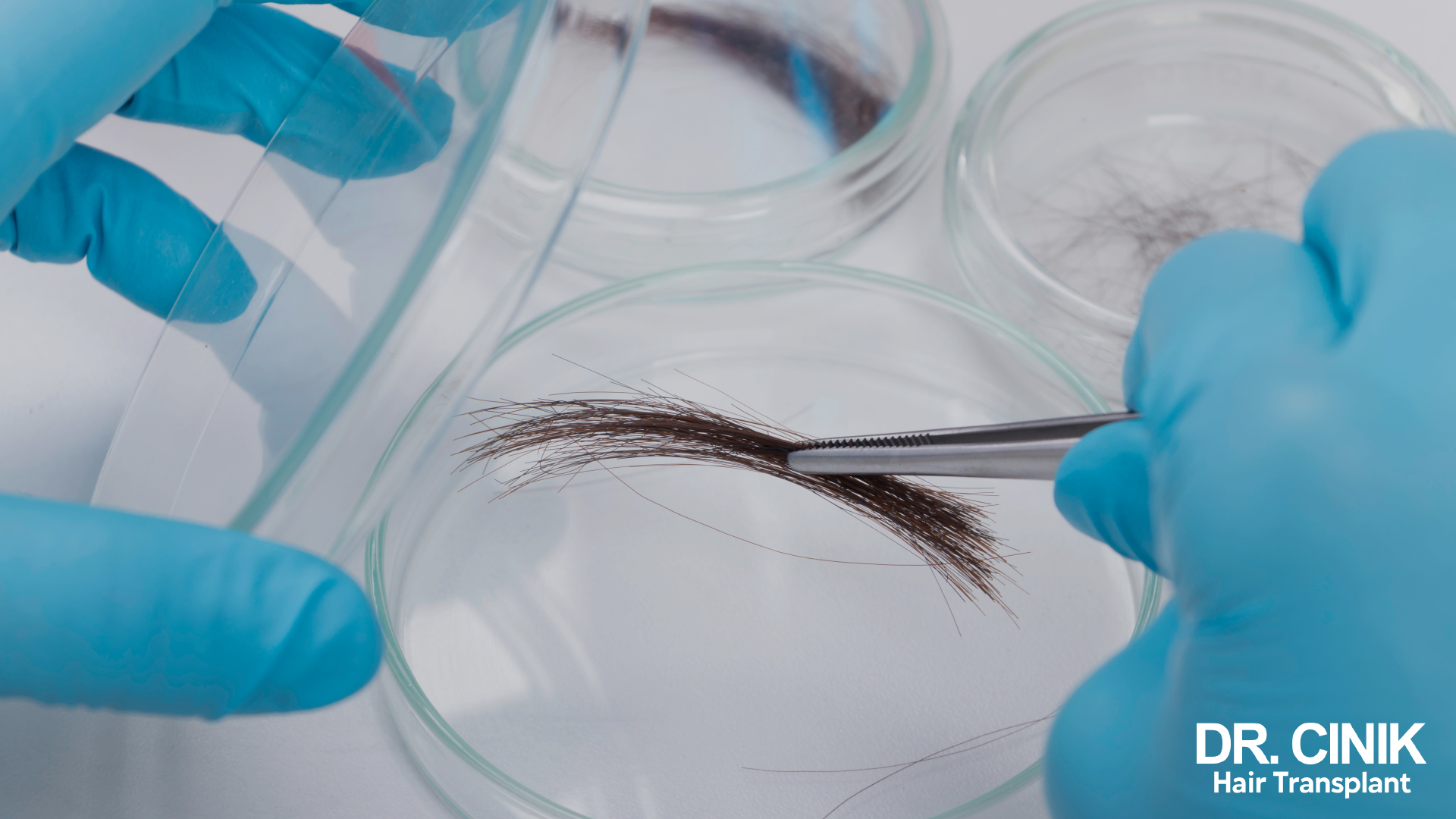
In essence, stress acts as a significant hindrance to hair growth, prematurely and excessively forcing hairs into the telogen phase. The underlying pathophysiological mechanisms are complex, involving neuroendocrine, inflammatory and vascular factors which will be detailed later.
Fortunately, in most cases, telogen effluvium is reversible. Once the stressor is removed, the hair cycle gradually rebalances and hair regrows naturally. Understanding the link between stress and hair loss is key to developing a comprehensive and effective treatment plan for telogen effluvium.
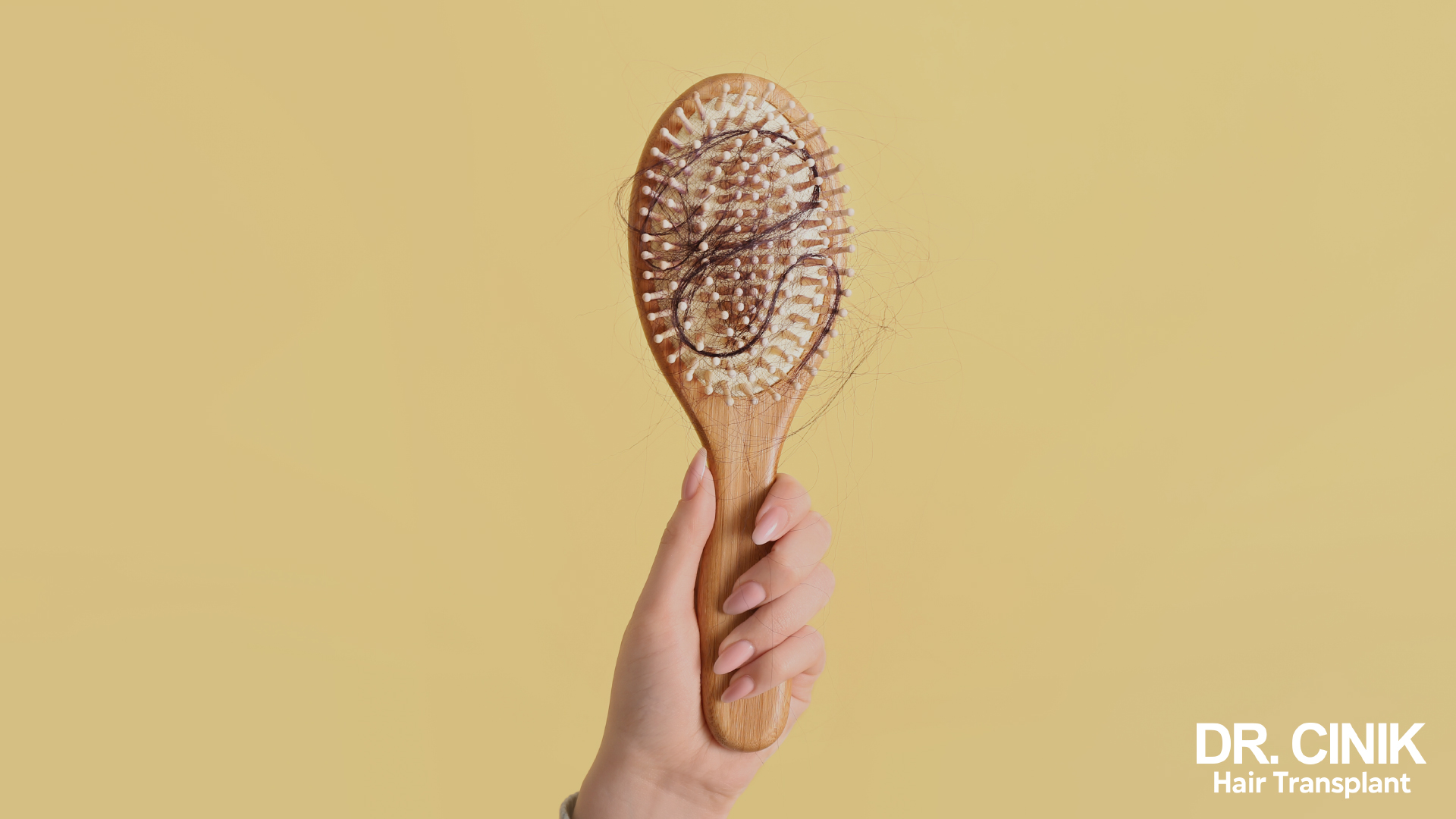
The characteristic signs of stress-related hair loss
Telogen effluvium, the form of hair loss related to stress, manifests in a fairly characteristic way. Here are the main signs to watch out for:
Sudden and diffuse hair loss
Telogen effluvium is characterised by diffuse hair loss, evenly distributed over the entire scalp. There is general thinning of the hair, without any areas of total baldness. This is what differentiates telogen effluvium from other more localised forms of hair loss, such as alopecia areata (small patches of baldness) or androgenetic alopecia (progressive receding of the hairline and thinning on the crown).
Delayed onset several months after stress
There is a time lag between the triggering stressful event and the onset of noticeable hair shedding. The hairs that prematurely entered the telogen phase take several weeks to detach and shed, which explains why telogen effluvium typically manifests clinically around 2 to 3 months after the initial stressful episode.
Significant but temporary hair loss
Telogen effluvium results in often dramatic hair shedding, up to several hundred hairs per day. However, this is a temporary phenomenon. Once the stressor is eliminated, hair regrowth begins gradually and the hair usually regains its initial density within a few months.
Shedding of large clumps of hair
During an episode of telogen effluvium, hair falls out in abundance, especially when brushing, washing or styling. It’s common to find many hairs on the pillow upon waking, in the hairbrush, or in the shower drain. This excessive hair shedding is often the first warning sign.
The absence of other associated symptoms
Telogen effluvium is not accompanied by associated scalp symptoms such as redness, itching, flaking, or pain. Clinical examination also finds no signs of scarring or inflammation. This is an “isolated” form of hair loss, with no visible disturbance to the condition of the scalp.
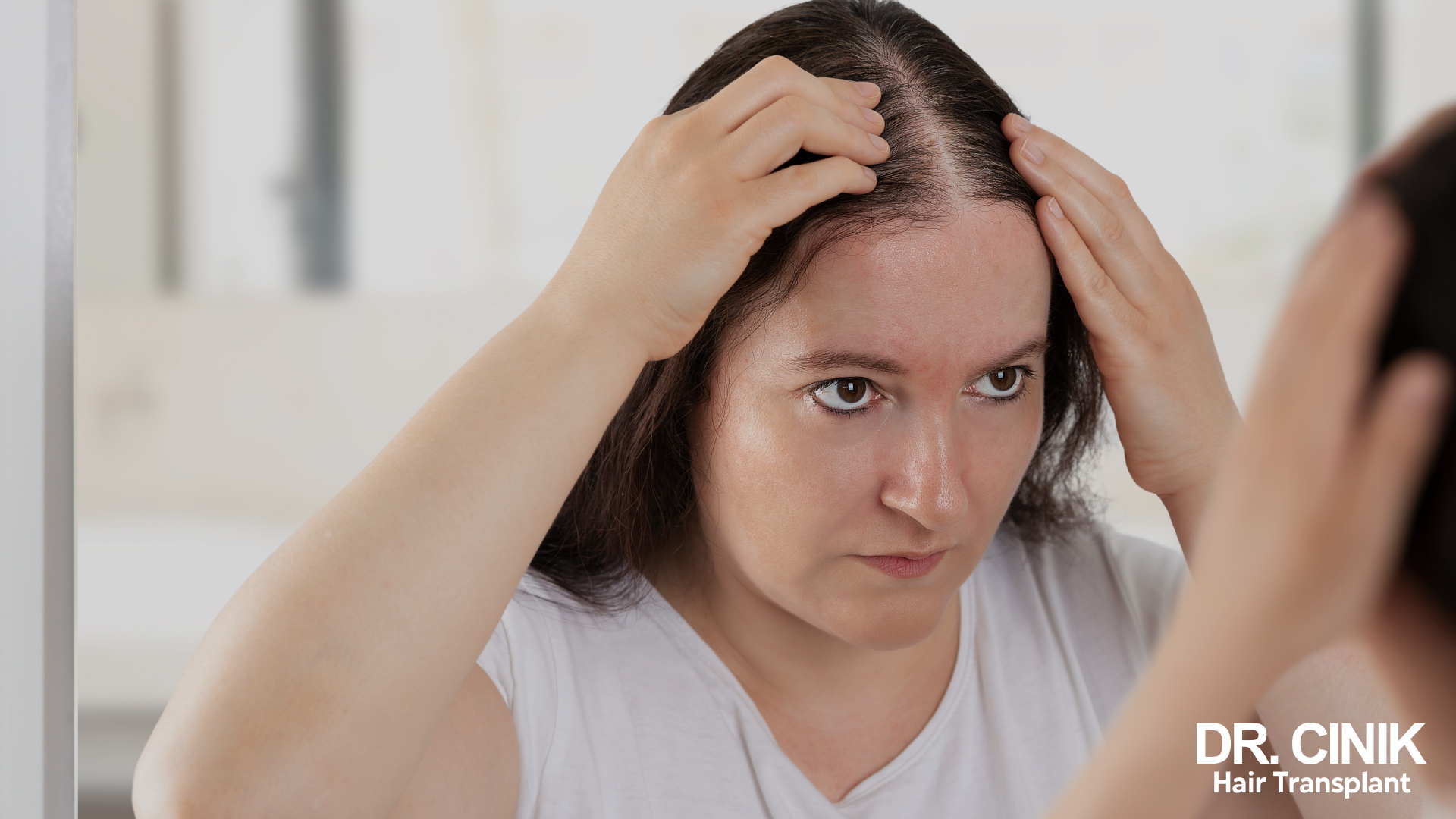
It’s worth noting that several types of hair loss can sometimes coexist. For example, telogen effluvium occurring in addition to pre-existing androgenetic alopecia can give the impression of a sudden acceleration of hair loss. In this case, the telogen effluvium in a sense “unmasks” or exacerbates the underlying androgenetic alopecia.
Emotional, physical, oxidative stress…: the different types of stress
Stress is a generic term encompassing different types of stress, all of which can negatively impact our hair. Whether emotional, physical or oxidative in origin, significant or prolonged stress can disrupt the hair growth cycle and trigger telogen effluvium. Let’s take a closer look at these different types of stress that can lead to hair loss.
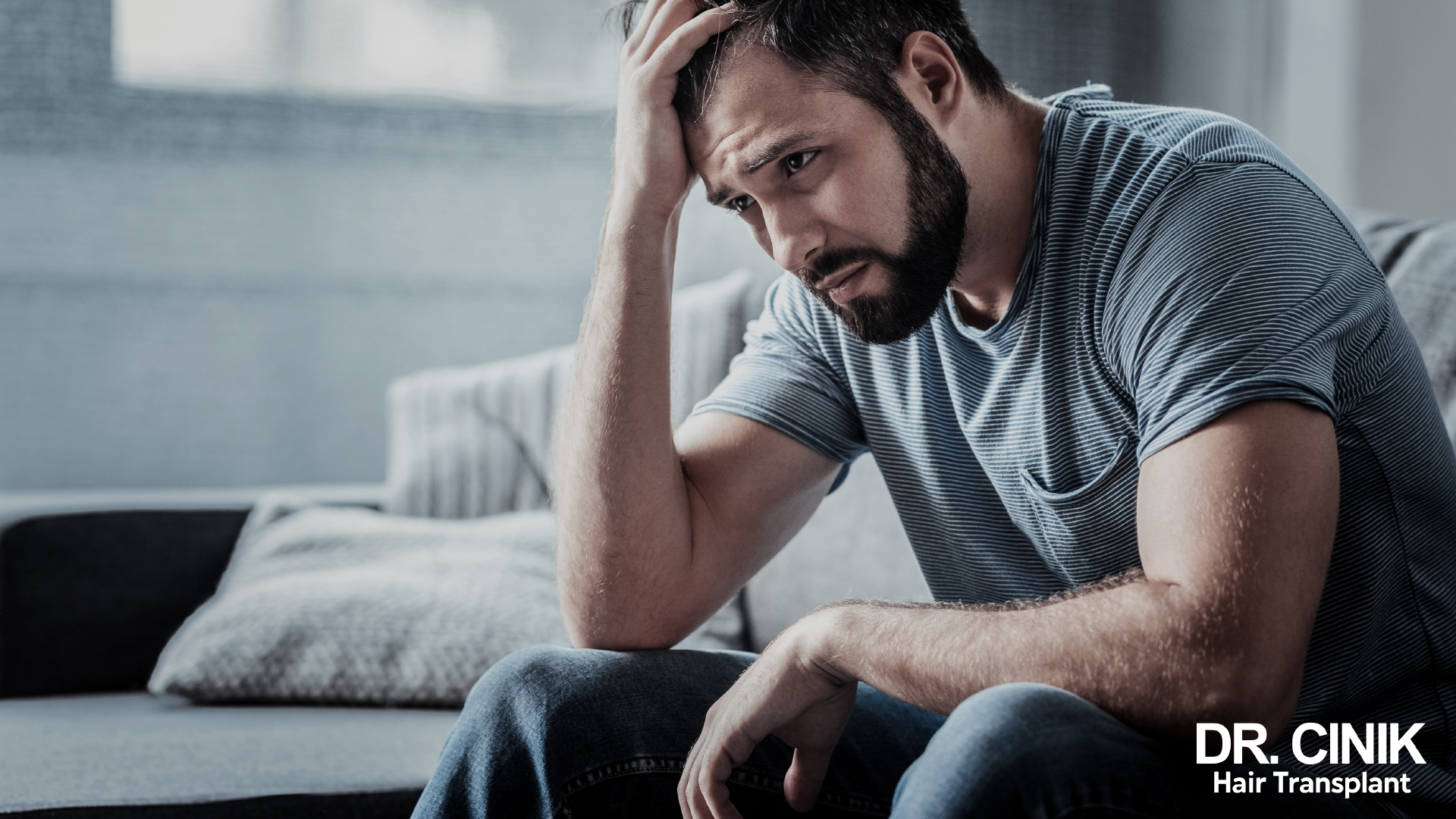
Psychological and emotional stress
This is the type of stress most commonly implicated in telogen effluvium. Difficult life situations such as bereavement, depression, professional burnout, chronic anxiety or sleep disorders can generate intense psychological stress. This emotional stress stimulates the production of cortisol, the stress hormone secreted by the adrenal glands. However, excessive and prolonged elevation of cortisol levels can interfere with the hair growth cycle by shortening the anagen growth phase and promoting premature transition into the telogen resting phase, leading to diffuse hair shedding a few months down the line.
Physical and physiological stress
Our body can also experience significant physical stress during certain situations such as illness, surgery, childbirth or crash dieting. These events represent a form of “shock” to the body, which then mobilizes its energy to cope with this assault. This physiological stress response is also accompanied by increased secretion of cortisol. As mentioned previously, persistently high cortisol levels can disrupt the hair cycle and trigger telogen effluvium in the following months.
Chronic oxidative and inflammatory stress
Oxidative stress is another type of stress, less well-known but equally damaging for our hair. It is linked to an imbalance between the production of free radicals (unstable and toxic molecules) and the body’s antioxidant capacities. This oxidative stress can be induced by various factors such as pollution, smoking, an unbalanced diet, excessive sun exposure or even certain chronic illnesses. When present for a prolonged period, oxidative stress generates chronic inflammation in the scalp. Interestingly, cortisol, in addition to its direct impact on the hair cycle, also stimulates the production of free radicals and perpetuates this chronic inflammation. This creates a vicious cycle, where stress, cortisol and inflammation self-perpetuate, thus amplifying the impact of stress on our hair.
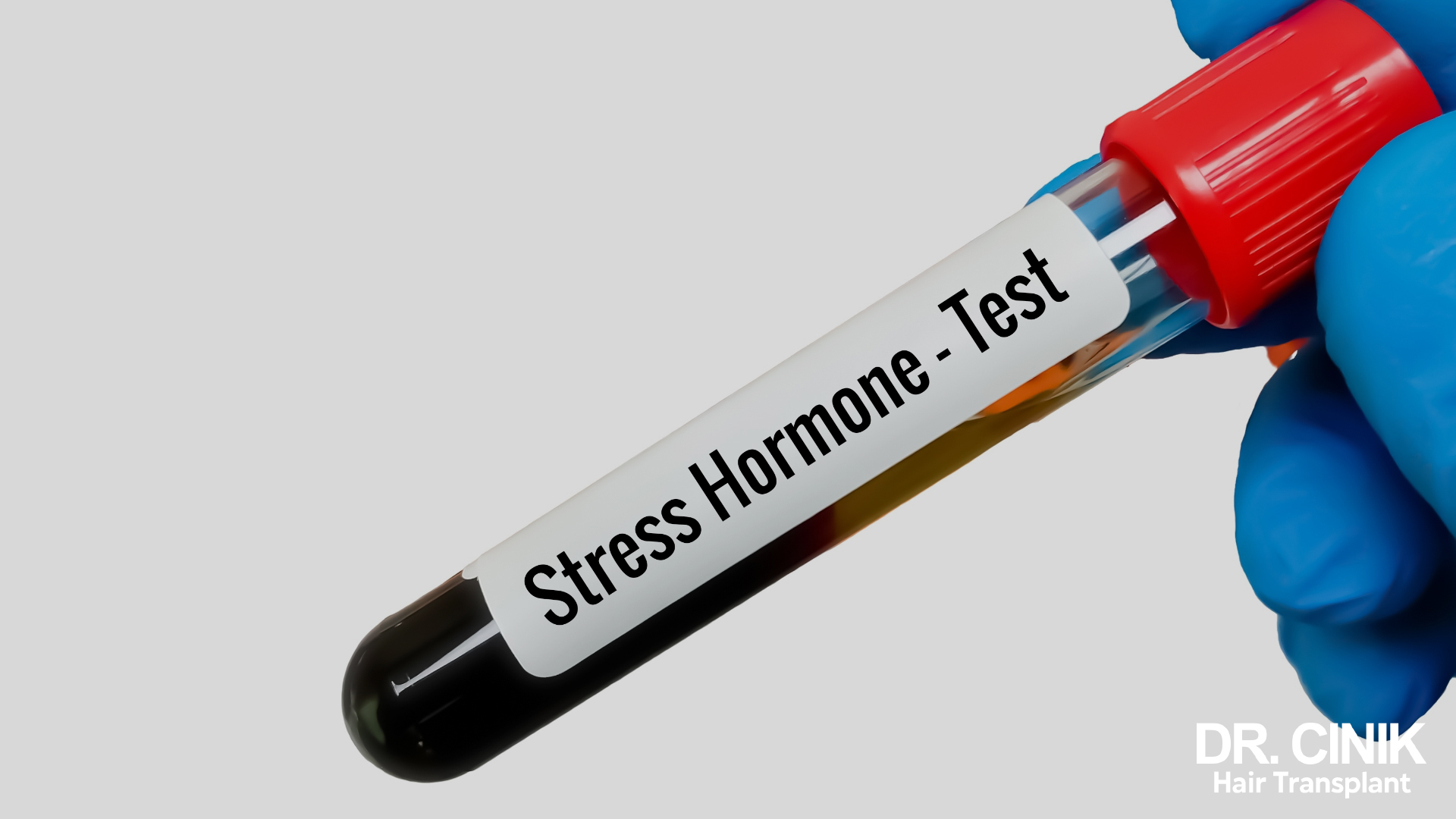
Stress, whatever its origin, can have significant repercussions on our hair. Whether psychological, physical or oxidative, chronic or intense stress can disrupt the hair cycle and trigger telogen effluvium, particularly through the action of cortisol. It is, therefore, essential to learn how to manage your stress on a daily basis.
In the skin of stressed hair: the biological mechanisms involved
As we have seen, stress can have a considerable impact on our hair, notably by triggering telogen effluvium. But concretely, what happens in the scalp and hair follicle when we are stressed? What are the biological mechanisms underlying this reactive hair loss? Let’s dive into the skin of stressed hair together to better understand these phenomena.
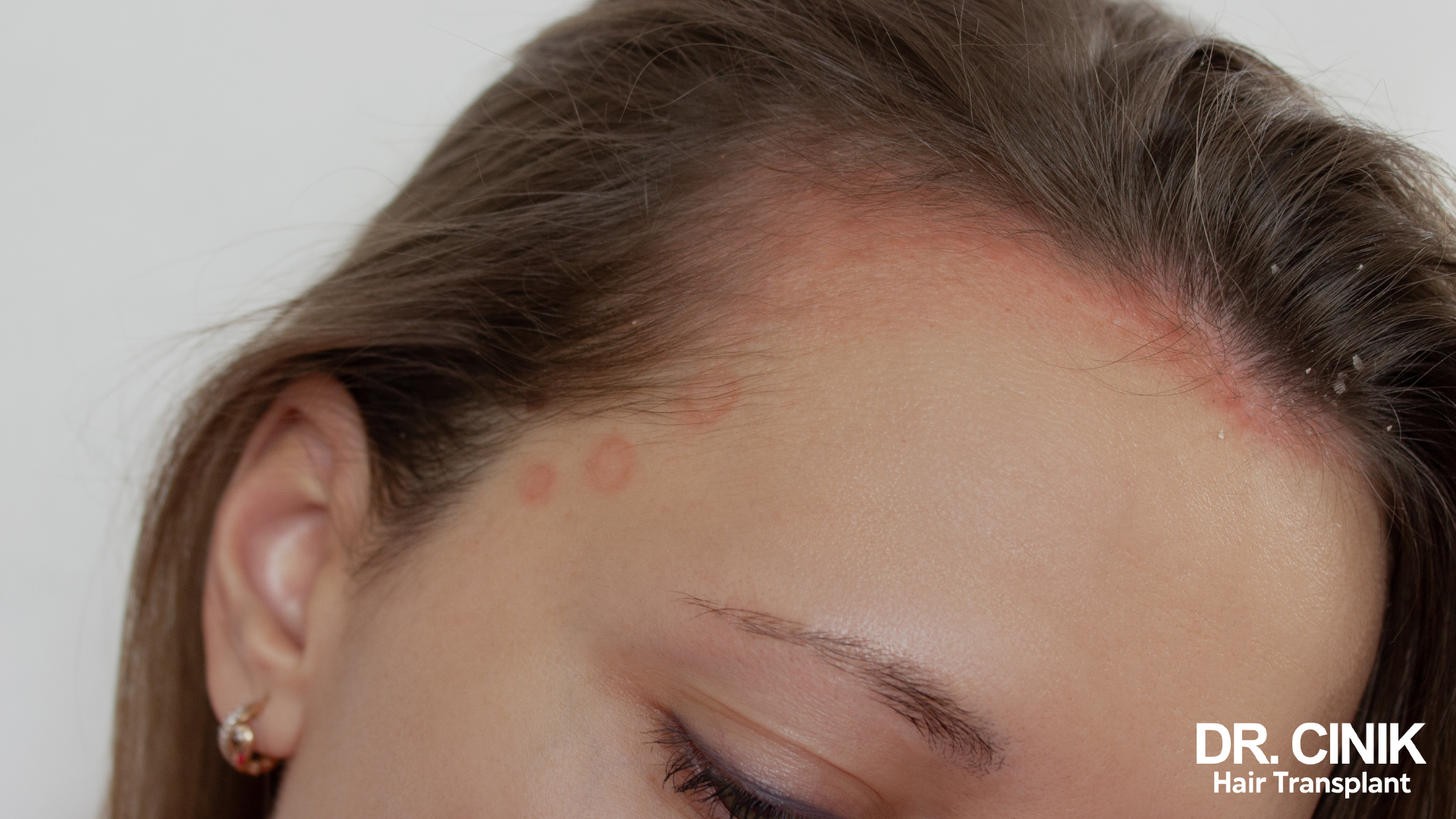
Alteration of the hair cycle and follicle activity
Stress, whether psychological, physical or oxidative, disrupts the normal hair growth cycle. Under the effect of stress, the anagen growth phase is abruptly interrupted, forcing the hair to prematurely enter the telogen resting phase. This alteration of the hair cycle is accompanied by a reduction in the metabolic activity of the hair follicle, which then becomes less “effective” at producing new hair. The follicle enters a sort of temporary “dormancy”, which delays the regrowth of the hair after it has shed.
Role of necro-inflammatory substances
In situations of stress, our body releases various necro-inflammatory substances which act directly on the hair follicle. This is particularly the case for cortisol (the stress hormone), prolactin (a lactation hormone but also involved in stress) and substance P (an inflammatory neuropeptide). These molecules bind to specific receptors present on the surface of the hair follicle, triggering a cascade of local inflammatory reactions. This chronic inflammation alters the microenvironment of the follicle and disrupts its functioning, favouring premature transition into the telogen phase.
Decreased blood microcirculation and nutrient intake
Stress also has an impact on the blood microcirculation in the scalp. Indeed, the vasoconstrictor substances released in stressful situations (like adrenaline) reduce the caliber of the small blood vessels which supply the hair follicles. This reduction in cutaneous blood flow then limits the supply of oxygen and nutrients essential for hair growth (vitamins, minerals, amino acids, etc.). The hair follicle, less well “nourished”, then slows down its activity and produces hair of lower quality, finer and more fragile.
Shortening of the growth phase and miniaturisation of hair
As a direct consequence of the previous mechanisms, stress significantly shortens the duration of the hair growth phase (anagen). The hair then has less time to grow and thicken, which results in a progressive miniaturisation of the hair shaft. The new hair that regrows after a stressful episode is often finer, shorter and sparser, giving that distinctive “balding” appearance of telogen effluvium.
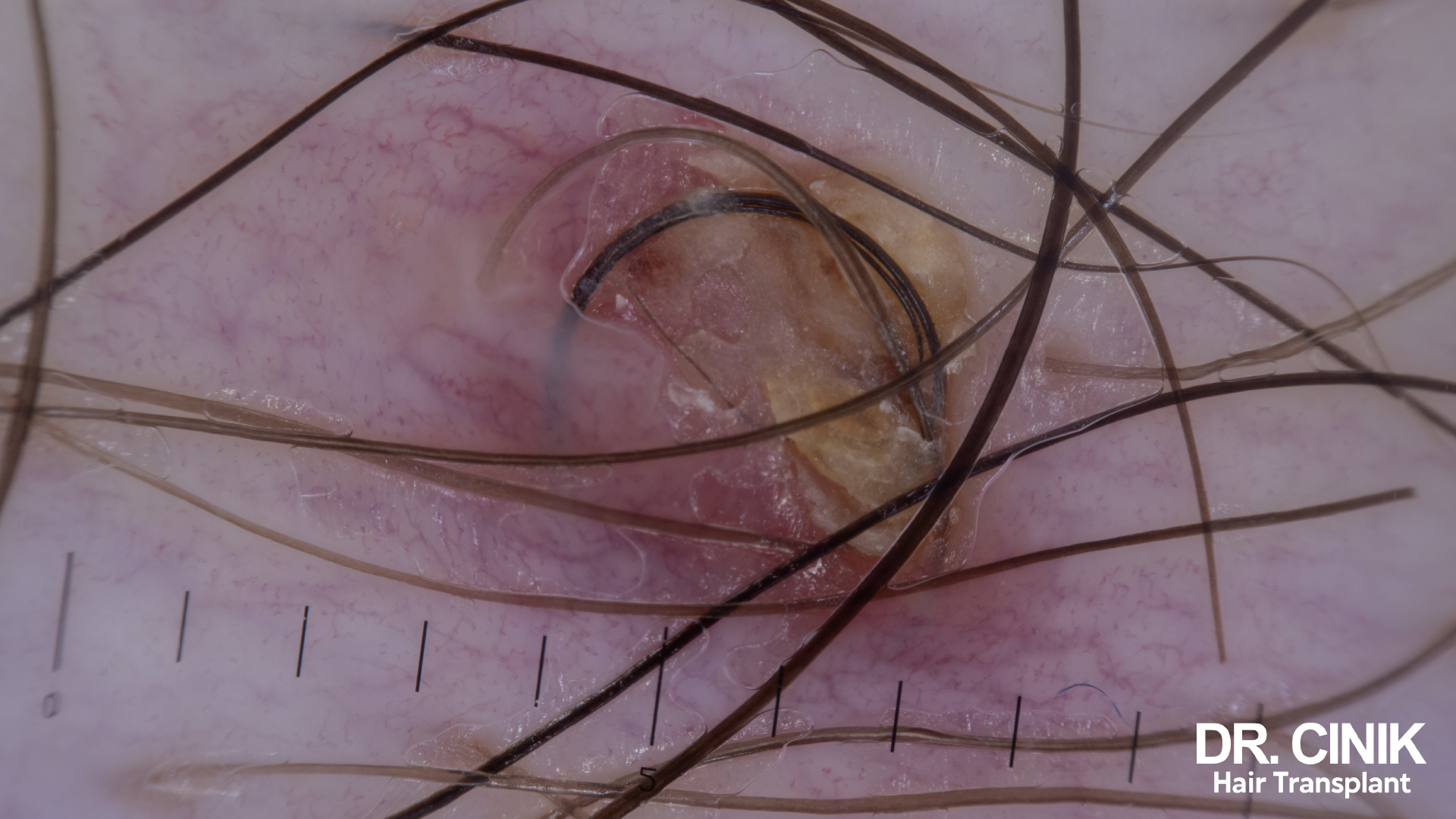
Stress acts at multiple levels to disrupt the physiology of the hair follicle and the hair growth cycle. By altering follicle activity, generating local inflammation, reducing nutrient intake and shortening the growth phase, stress creates a truly “hostile environment” for our hair.
Hair loss and stress, the vicious circle
We have just seen how stress can impact our hair, particularly by causing telogen effluvium. But what is less known is that this hair loss itself can generate additional stress in people who suffer from it. Indeed, hair loss is often experienced as a real trauma, with significant repercussions on self-esteem, self-confidence and quality of life. A vicious circle can then set in, where stress and hair loss mutually fuel each other, creating a feedback loop from which it can be difficult to escape.
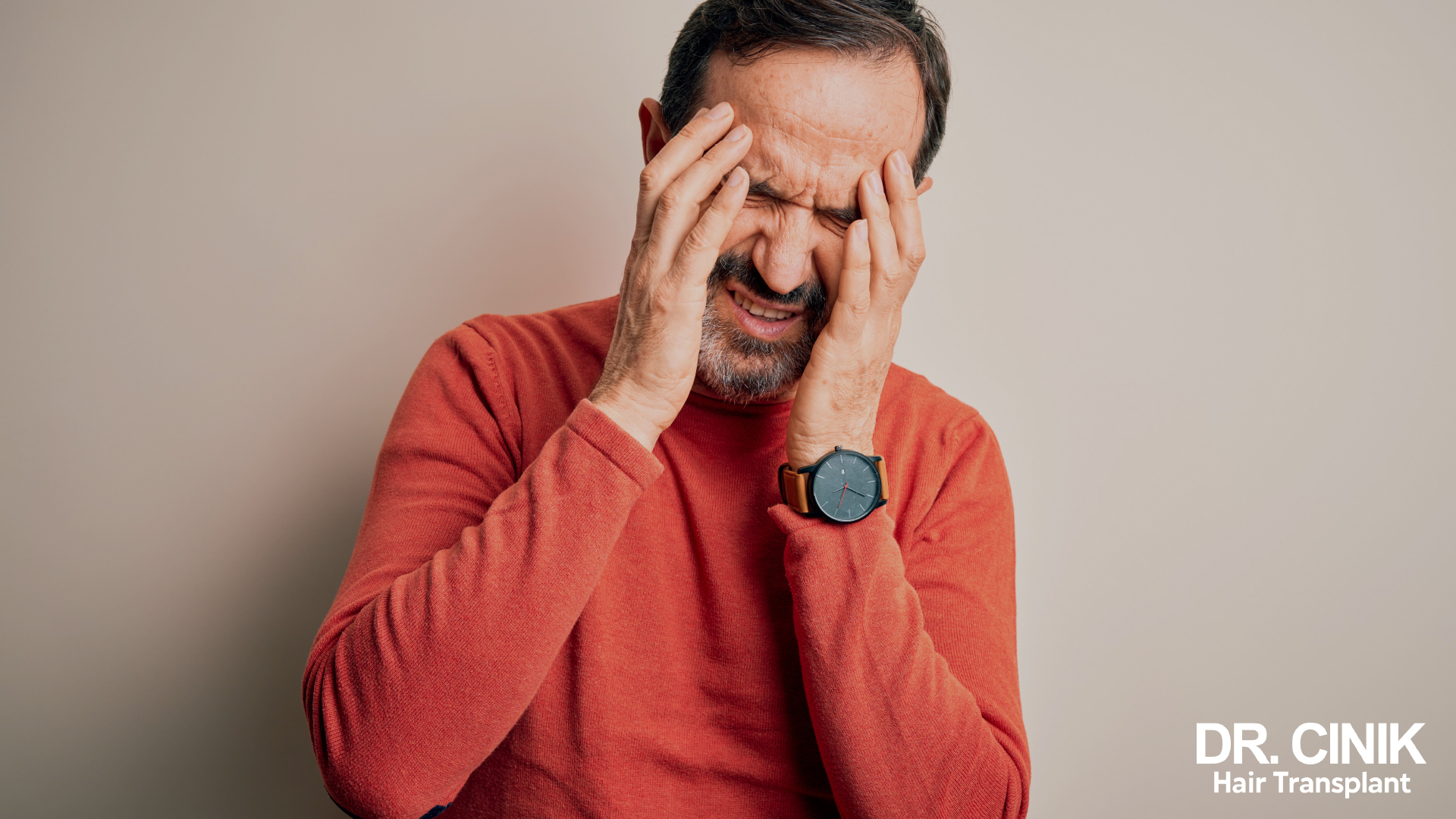
For many people, hair is an essential attribute of their identity, their femininity or their masculinity. Losing your hair, even temporarily, can then be experienced as a real ordeal, generating significant stress and anxiety. Fear of loss of attractiveness, worry about how others will perceive you, loss of self-confidence – these are all factors that can fuel this “secondary” stress, linked to the hair loss itself. This additional stress then aggravates the initial telogen effluvium phenomenon, thus creating a real vicious circle where stress causes hair loss, which itself generates new stress.
To break out of this vicious circle, it is essential to learn how to manage your stress globally. This involves implementing relaxation and stress management techniques on a daily basis. Regular physical activity (yoga, meditation, sport, etc.), breathing exercises, sophrology or cognitive-behavioural therapies can be of great help in reducing the level of stress and anxiety. It is also important to take time for yourself, to allow yourself moments of relaxation and leisure, in order to regularly “disconnect” from the stresses of everyday life.

In certain cases, when stress becomes chronic and overwhelming, it may be necessary to seek support from a professional (psychologist, psychotherapist, coach, etc.). Personalised guidance can then help to work on the deep-rooted sources of stress, identify the triggering factors and implement appropriate coping strategies. This support can be invaluable for people suffering from telogen effluvium linked to chronic stress, by helping them to break the vicious stress-hair loss cycle.
Finally, it is important to try to accept and put hair loss into perspective, keeping in mind that it is most often a temporary and reversible phenomenon. Focusing excessively on your hair loss only fuels stress and anxiety, thus exacerbating the problem. Try to focus on the positive aspects of your life, on your strengths and qualities, beyond your hair. Adopt a kind attitude towards yourself and don’t hesitate to talk to your loved ones about it to feel supported during this challenging time.
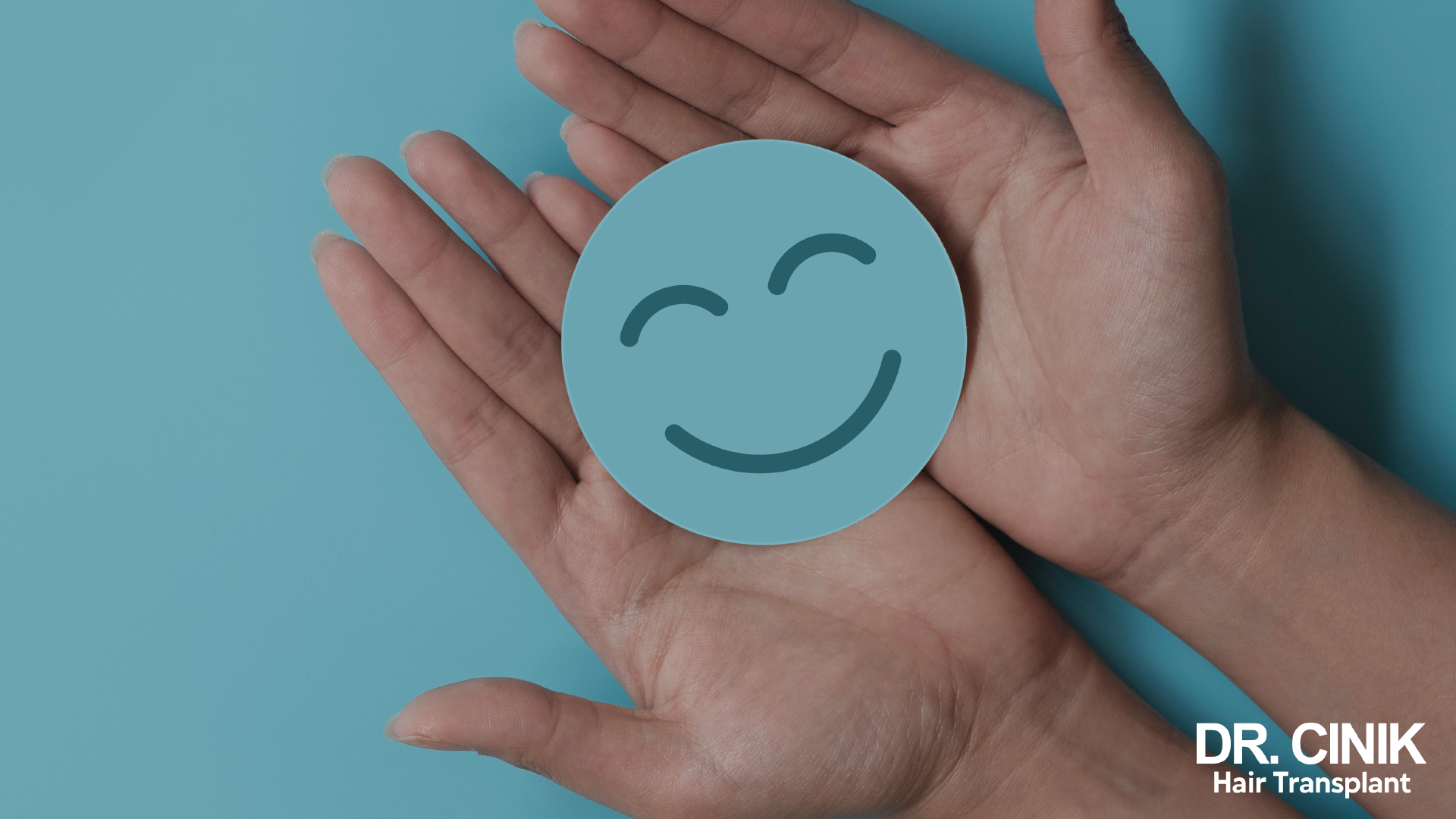
What solutions can be found to reduce hair loss and promote regrowth?
When faced with telogen effluvium, it is possible to implement different strategies to reduce hair shedding and stimulate regrowth. The objective is to rebalance the hair cycle and restore an environment conducive to healthy hair growth.
Addressing the triggering stressor
First and foremost, it is essential to address the triggering stressor, whether psychological or physical. This can involve lifestyle improvements (sleep, physical activity, stress management, etc.), appropriate medical care in case of illness or deficiency, or psychological support if needed.

Medication and dietary supplements
At the same time, certain medicinal treatments can be offered to slow down hair loss and stimulate regrowth. Food supplements containing vitamins (biotin, B vitamins, etc.), minerals (iron, zinc, etc.) and plant extracts (horsetail, nettle, etc.) can help strengthen hair and optimise its growth. In certain cases, topical treatments (lotions, sprays, etc.) or oral medications may be prescribed by a dermatologist to regulate the hair cycle.

Stimulating scalp microcirculation
At the local level, it is recommended to stimulate the microcirculation of the scalp through gentle and regular massages. This helps improve the oxygenation and nutrition of hair follicles, promoting hair regrowth. Massages can be performed manually or using a specific massage device.
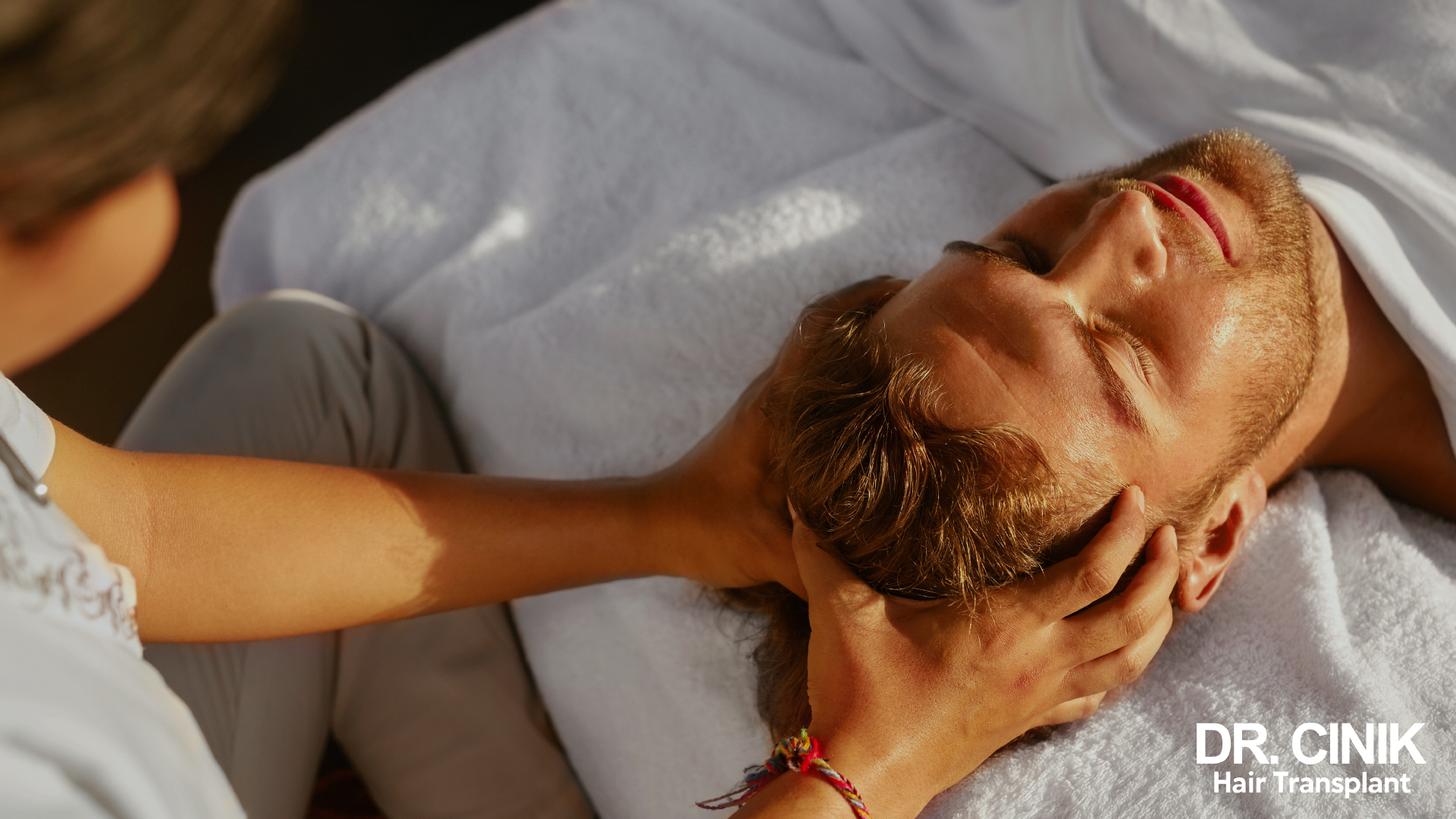
Adopting a balanced and anti-inflammatory diet
Finally, adopting a balanced, anti-inflammatory diet can help reduce chronic scalp inflammation and optimise hair health. Favour foods rich in vitamins, minerals and antioxidants (fruits, vegetables, whole grains, fatty fish, etc.) and limit the consumption of pro-inflammatory foods (refined sugars, saturated fats, ultra-processed foods, etc.).

Important notes
It is essential to note that hair transplantation is not a suitable treatment for telogen effluvium. Indeed, this surgical technique is reserved for very specific indications, such as androgenetic alopecia (male or female pattern baldness) or certain forms of scarring alopecia (following a burn, wound or excessive traction). In the case of telogen effluvium, hair transplantation is not justified because the hair loss is diffuse, temporary and reversible.
However, it is important to emphasise that stress can aggravate and accelerate the progression of pre-existing androgenetic alopecia. Indeed, stress can disrupt the hair cycle and accentuate the miniaturisation of hair, already weakened by the action of androgens. Thus, an episode of significant stress can precipitate or worsen hair loss in a person genetically predisposed to baldness.

Finally, it is crucial to remember that any chronic stress requires comprehensive management. Treating stress is beneficial not only for hair health but also for overall physical and mental well-being. A holistic approach, combining stress management, a balanced diet, targeted treatments, and medical monitoring, is often the key to the successful management of telogen effluvium.
Conclusion: no stress, your hair can regrow!
In conclusion, it is important to remember that stress is a major factor in reversible hair loss, particularly in the context of telogen effluvium. This form of diffuse and temporary hair loss is directly linked to an episode of significant or prolonged stress, which disrupts the normal hair growth cycle.
To stop this reactive hair loss, it is essential to implement comprehensive stress management strategies. This involves adopting relaxation techniques, practising regular physical activity, improving lifestyle habits and, if necessary, seeking psychological support.

At the same time, adopting a balanced, anti-inflammatory diet, such as the Mediterranean diet, can help strengthen hair health and promote hair regrowth. Rich in vitamins, minerals, antioxidants and essential fatty acids, this type of diet provides all the nutrients necessary for proper hair growth and development.
Finally, keep in mind that in the vast majority of cases, telogen effluvium is a temporary and reversible condition. With appropriate care and a little patience, your hair will gradually regrow, allowing you to regain a full head of healthy hair.
 en
en



